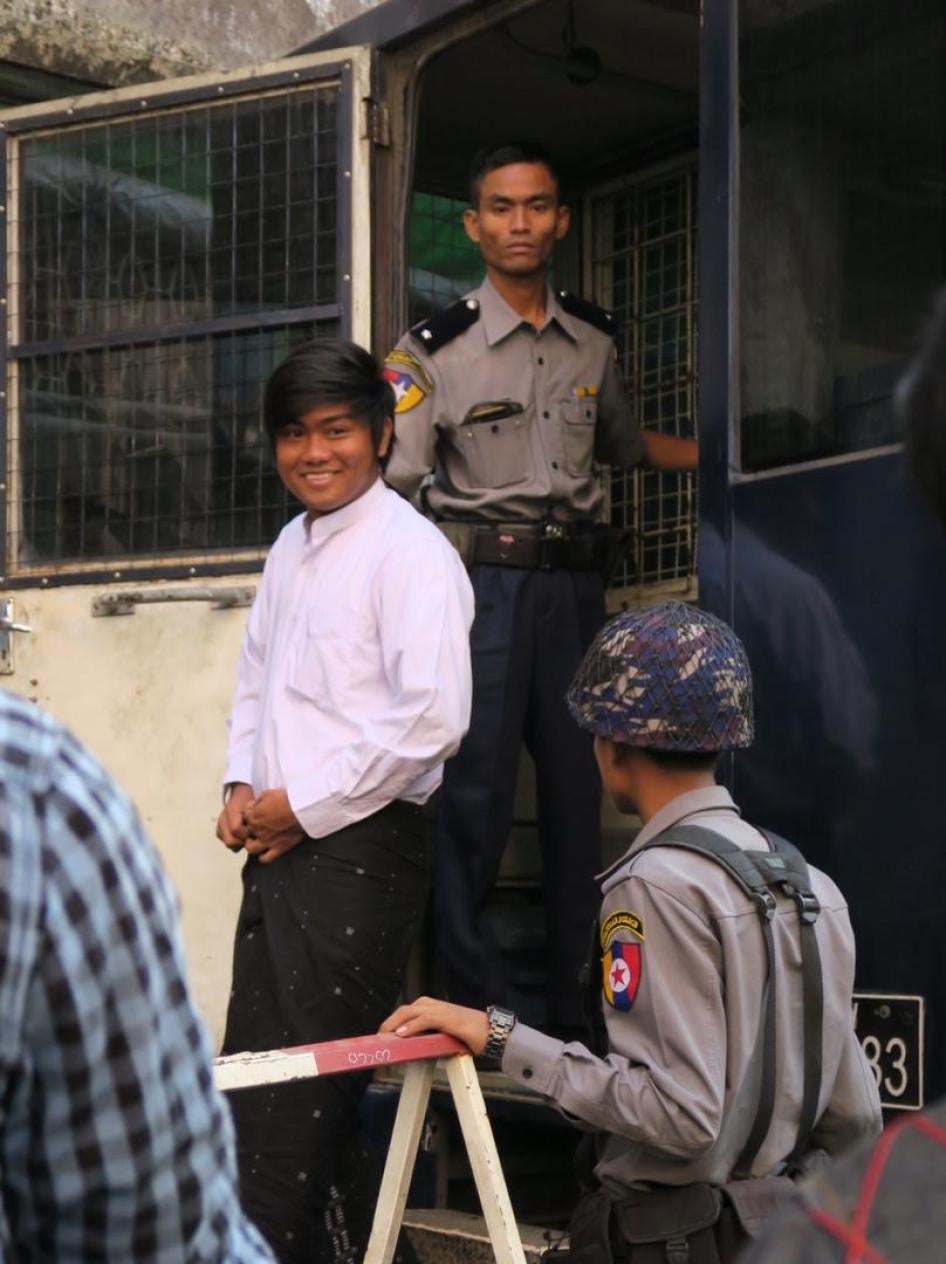Three university students, Zeyar Lwin, Paing Ye Thu and Nan Lin, are on trial in Rangoon, facing up to five years in prison. Their crime? Organizing a protest calling on the Burmese military to leave politics and focus on defending the country. But apparently believing that a five-year sentence was insufficient punishment, the police recently informed Zeyar Lwin and Nan Lin that they are now facing additional charges – for participating in protests against the country’s National Education Law back in 2014.
They are not the only students suddenly facing new charges for past protests. In late January, 10 students were informed that they are facing charges for a protest against the country’s National Education Law at Rangoon Eastern University more than 17 months ago.
The plethora of new charges against student protesters came shortly before the new Parliament was sworn in after the landslide victory by Aung San Suu Kyi’s National League for Democracy. The charges appear to be a stark warning from the Ministry of Home Affairs, which controls the police, the Special Branch, and the powerful General Administration Department, that it will continue to repress dissent even after the new government takes power at the end of March.
The new president, once sworn in at the end of March, will have the power to appoint a new attorney-general with, one hopes, different prosecutorial priorities, but the military will remain in control of the police and army. Without constitutional and legal reform, there is little to stop police and local authorities from continuing to use a range of broadly worded and abusive laws to arrest, jail and prosecute peaceful protesters.
One step that would have immediate impact would be to repeal the laws most frequently used against peaceful protesters—articles 18 and 19 of the Peaceful Assembly and Peaceful Processions Act and sections 505(b), 143, 145 and 147 of the Penal Code. If the new government and parliament make it a priority to repeal these provisions, which have in the past been wielded against many of those now sitting in Parliament, it would send a powerful message that change has truly come to Burma.









